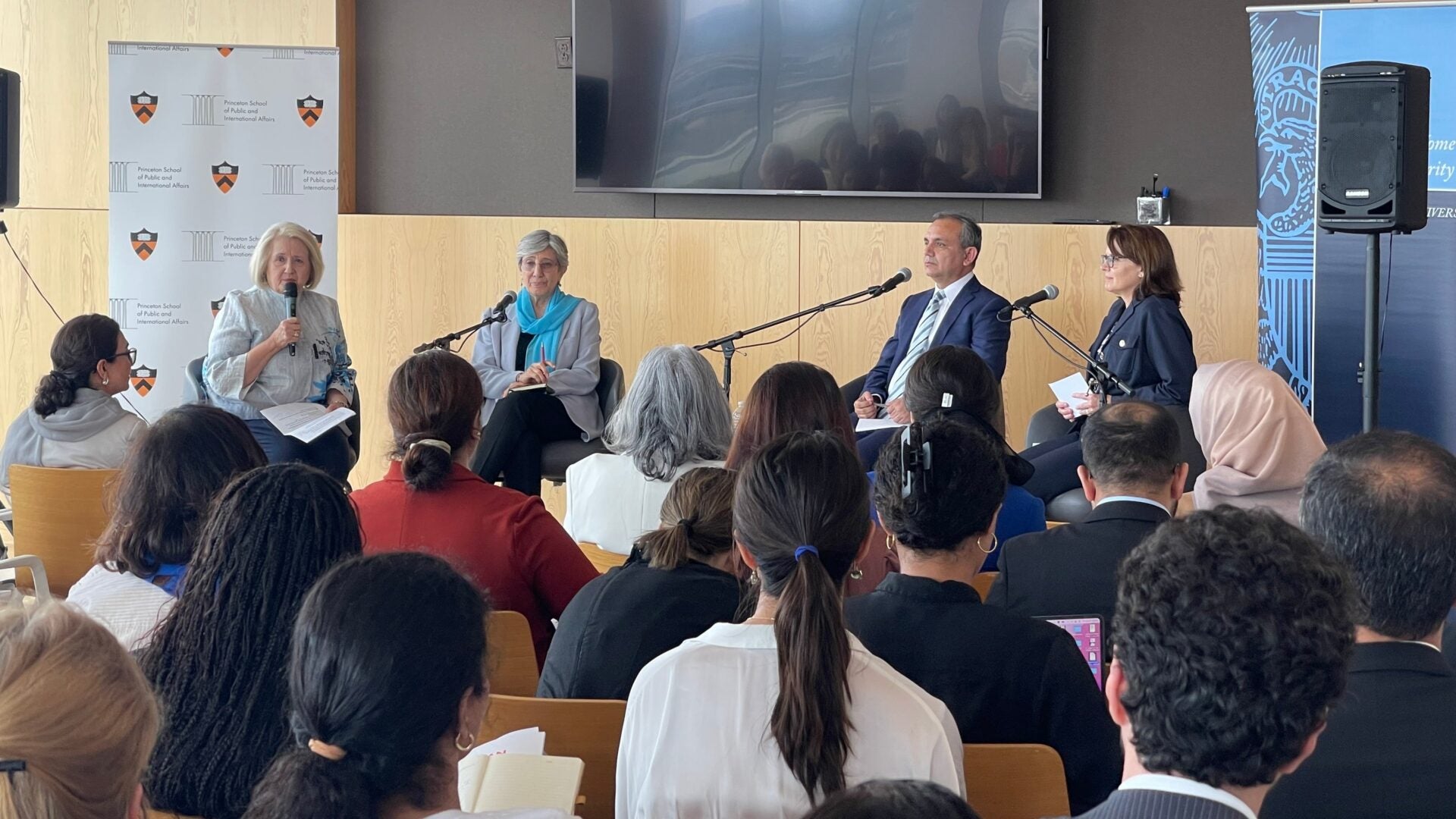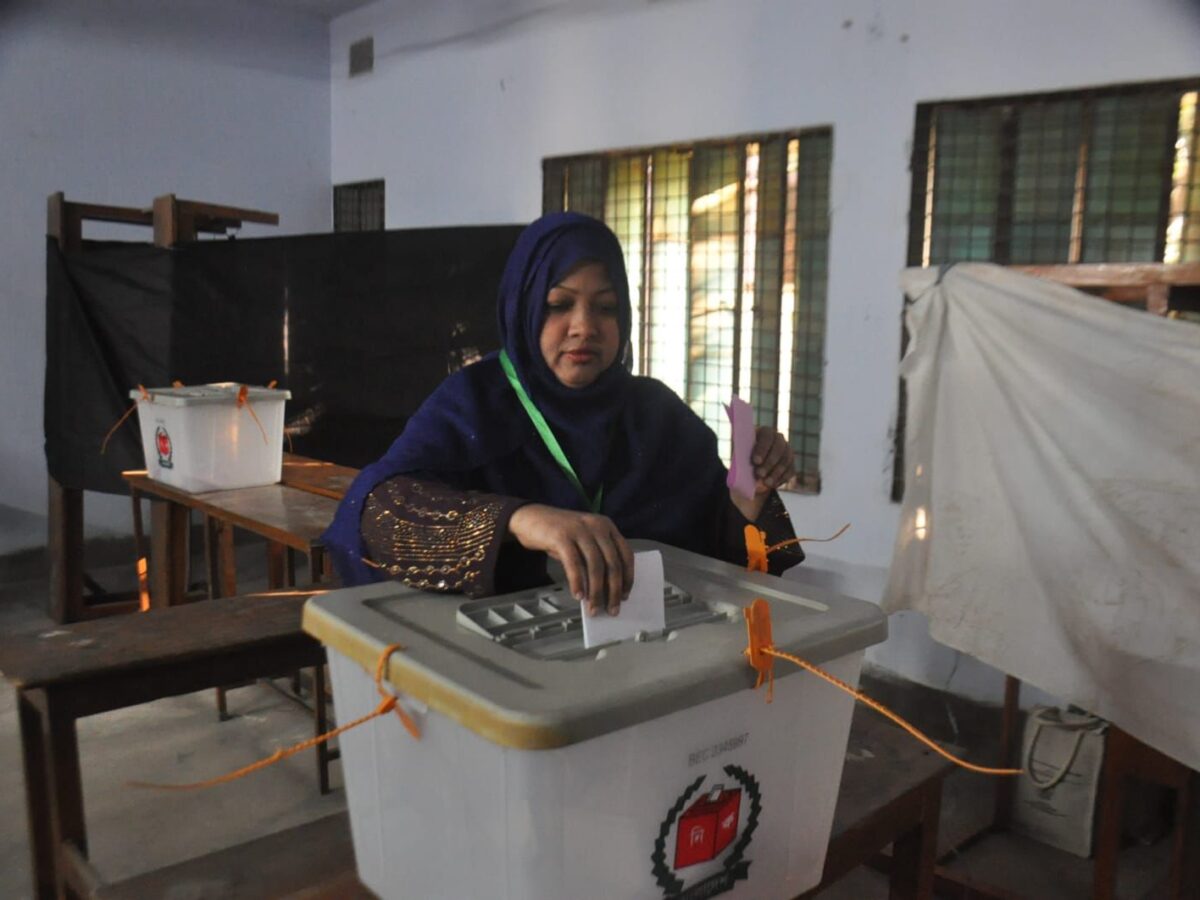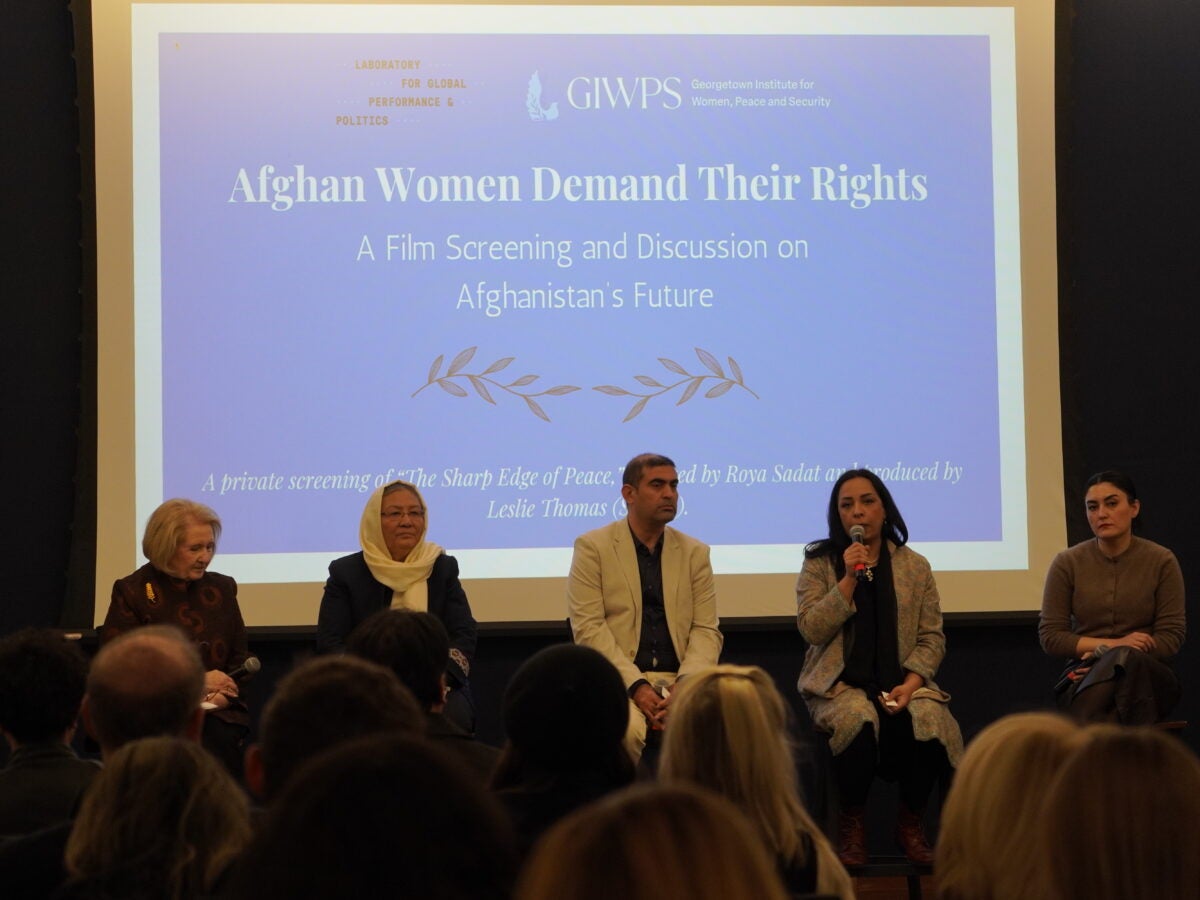Sanctions are a key tool to support Afghan women and girls

Women are now forbidden from showing their faces or using their voices in Afghanistan after the Taliban issued a new restriction in August. Since their takeover three years ago, approximately 100 of the Taliban’s edicts have specifically targeted women and girls constituting what many consider gender apartheid. In a blow that is both substantial and symbolic, the Taliban’s so-called Ministry for the Propagation of Virtue and Prevention of Vice–which is responsible for restricting women’s rights–now occupies the building where the former Ministry of Women’s Affairs once stood.
“I did not think we would be in prison and slaves again after 23 years,” said Dr. Sima Samar, Afghanistan’s Former Minister of Women’s Affairs.
To mark the third anniversary of Kabul’s fall to the Taliban, the Georgetown Institute for Women, Peace and Security and the Afghanistan Policy Lab at Princeton University’s School of Public and International Affairs (SPIA) hosted a day-long event to discuss Afghanistan’s economy, humanitarian situation, shrinking civic space, and ways forward.
“We need to have an honest conversation about how we can go forward, how we can leverage the tools that we have to try to have some impact in ways that will make a difference, no matter how difficult it is,” Ambassador Melanne Verveer, Executive Director of the Georgetown Institute for Women, Peace and Security, told an audience of Afghan leaders in exile, experts, and policymakers.
Following a morning of private dialogue, Verveer moderated a public discussion featuring Afghanistan’s former Minister of Women’s Affairs Dr. Sima Samar, former US government official Lisa Curtis, and Afghanistan’s former chairman of the Independent Civil Service Commission Nader Nadery. Ambassador Adela Raz, Afghanistan’s former Ambassador to the United States and Director of the Afghanistan Policy Lab at SPIA, provided opening remarks.
A common refrain from panelists was that the international community cannot be complacent.
“For any country that believes in universal human rights, to allow what is happening in Afghanistan, is, simply, unconscionable,” said Curtis.
By allowing abuses to go unchallenged, the international community has empowered the Taliban to dictate the agenda and act with an air of legitimacy to which they are not entitled. Although the international community may be hesitant to crack down on the Taliban, the challenges of promoting accountability pale in comparison to the challenges that inaction will pose not only for Afghan women and girls, but women and girls worldwide.
Panelists offered clear strategies to advance a more peaceful, secure, and inclusive future for Afghanistan. A resounding call was to leverage sanctions to hold the Taliban accountable, using both US and United Nations authorities to target those implicated in grave human rights abuses and/or support for terrorism.
- Utilize the Global Magnitsky Act more broadly. The United States Global Magnitsky Human Rights Accountability Act (“Global Magnitsky Act”) gives the US government authority to sanction perpetrators of “gross violations of internationally recognized human rights.” In December 2023, the US Treasury used the Global Magnitsky Act to sanction two Taliban officials, Fariduddin Mahmood and Khalid Hanafi, responsible for the closure of schools for women and girls. Panelists echoed a recent Washington Post oped by its Editorial Board to sanction more Taliban officials.
- Utilize Executive Order 13224. Executive Order 13224 (“E.O. 13224”) gives the US government authority to sanction “persons who commit, threaten to commit, or support terrorism.” The Taliban have utilized their de facto authority to support terrorist groups like Al-Qaeda and Tehrik-e-Taliban Pakistan, and should be held accountable.
- Target sanctions evasion. Despite existing United Nations sanctions programs and individuals countries’ designations, notorious Taliban leaders have been able to travel freely. In June, Sirajuddin Haqqani–who has been sanctioned by both the US and United Nations–traveled to the United Arab Emirates. In July, the United Nations lifted travel restrictions on Haqqani and three other Taliban leaders–Abdul Kabir Mohammad Jan, Abdul-Haq Wassiq, Noor Mohammad Saqib–to travel to Saudi Arabia for the Hajj. The officials enjoying freedom of movement are those responsible for confining women to their homes.
Beyond sanctions, panelists called for codifying gender apartheid as a crime against humanity; monitoring and documenting human rights abuses and continuing the United Nations’ independent assessment on Afghanistan; and including Afghan women in decision-making about Afghanistan’s future.
“We lost the capacity of crying,” Dr. Samar told the audience, acknowledging the devastating and innumerable blows that Afghan women have suffered in the past three years. “It is against human dignity no matter where we are.”
The international community is witness to the Taliban’s systematic persecution, gender apartheid, and crimes against humanity, and cannot stand idly by. The Taliban’s actions demand not only condemnation, but action. There are tools to uphold human dignity in Afghanistan. It is our collective responsibility to ensure that leaders use them.
Explore More

Reassessing Bangladesh’s National Election 2026
The Constitutional Referendum and General Election held on 12 February 2026 was…

Afghanistan’s new laws give animals ‘more rights’ than women

A Community Holding onto Hope: Georgetown Screens Documentary on the Fight for…
When the Taliban took over Afghanistan after U.S. troops withdrew in 2021,…